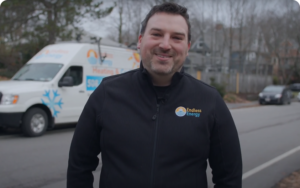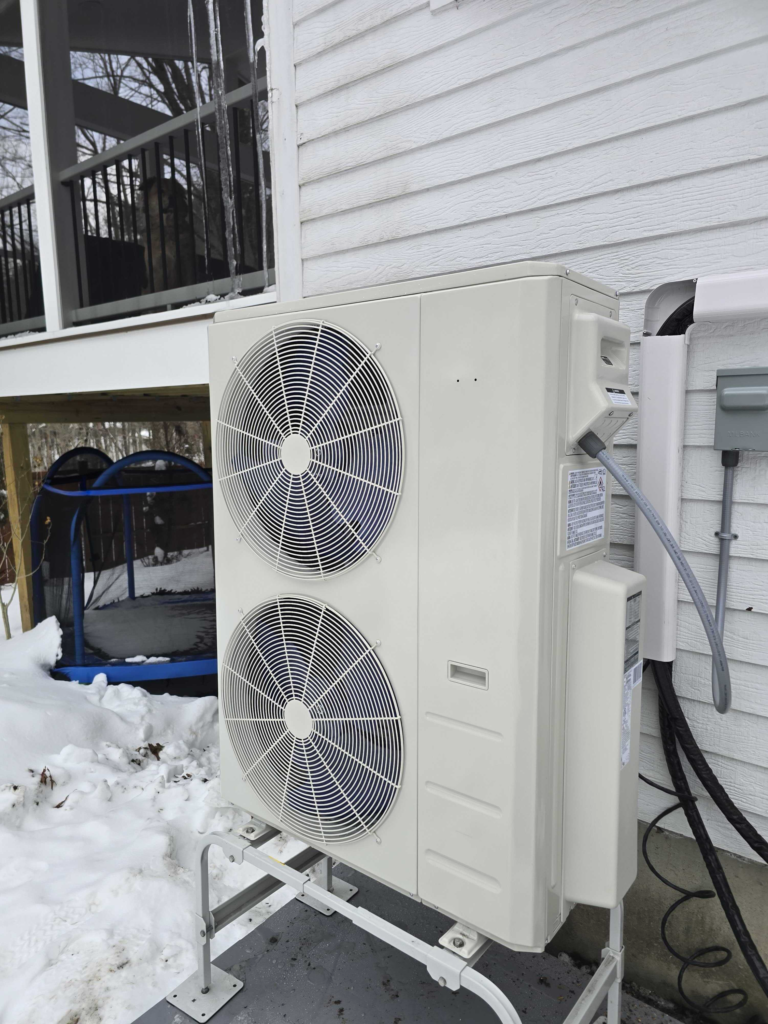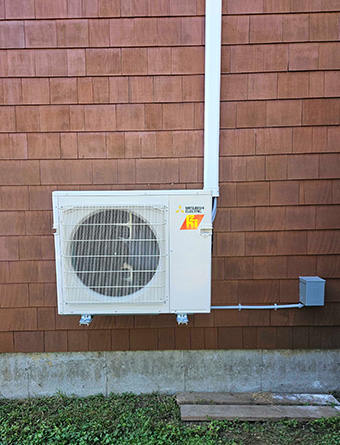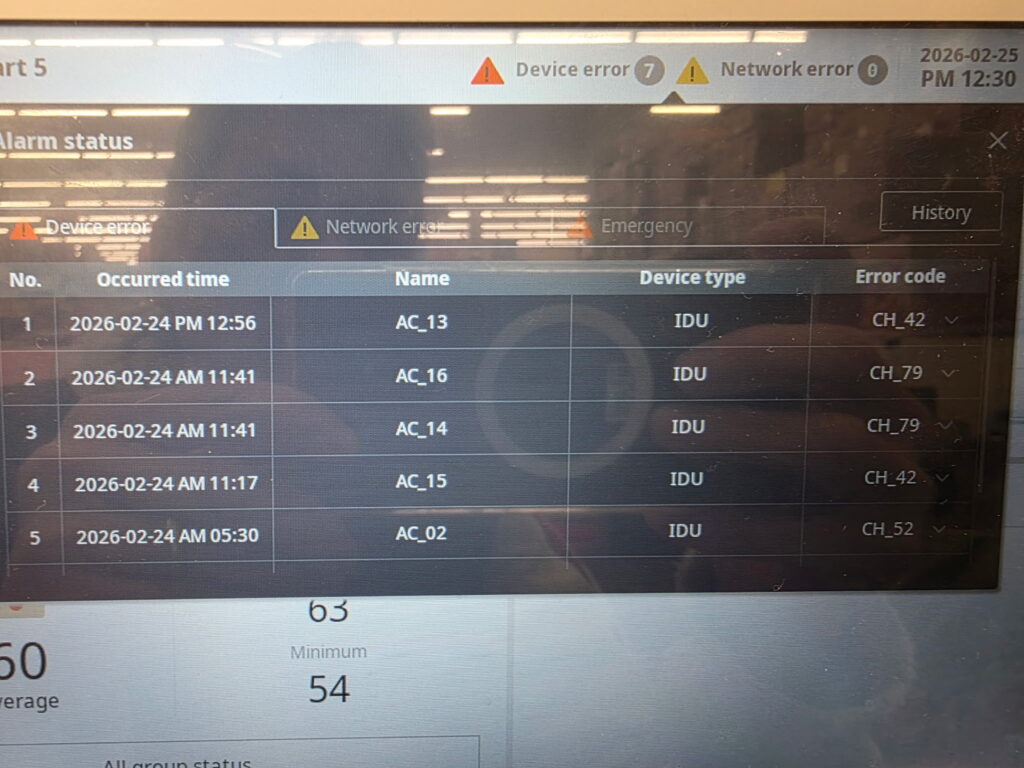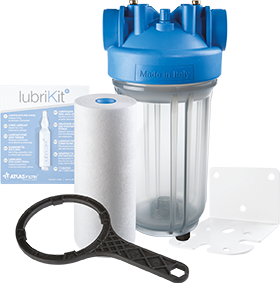Endless Energy’s customer care team’s phones have been ringing nonstop since that brutal heat wave hit Massachusetts in late June. Even now in August, they’re still fielding calls like:
“My AC’s been running constantly, but it’s still 78 degrees upstairs.”
“The downstairs is okay, but my bedroom feels like a sauna.”
“I think something’s wrong — it used to cool better than this.”
Here’s what our technicians want you to know: your system probably isn’t broken. It’s just doing exactly what it was designed to do — and that might not be what you think.
Your AC Wasn’t Built for This
Most people don’t realize that air conditioners are sized for what we call a “design day” — typically around 85-90°F outside, aiming for 75°F inside. When it’s 95°F with 80% humidity (like we’ve been seeing), your system is basically running a marathon it wasn’t trained for.
One of our lead technicians installed a brand-new, high-efficiency system for a family in Wellesley last spring. Three weeks ago, the homeowner called our customer care team convinced something was wrong because the house was sitting at 76°F instead of the usual 72°F.
Our tech explained: “Nothing’s wrong. Your system is working harder than it ever has, and it’s still winning — just not by as much.”
That’s the reality. No residential AC system is designed to create a 30-degree temperature difference between inside and outside. If yours is maintaining anything in the mid-70s during a heat wave, it’s actually performing pretty well.
The Real Culprits Behind Hot Houses
But let’s say your house really is uncomfortable — not just a few degrees warmer, but genuinely unlivable. In my experience, the problem usually isn’t the AC unit itself.
Older Massachusetts homes are terrible at holding onto cold air. Our service team can’t count how many calls they’ve been on where the homeowner spent $5,000 on a new AC system but never addressed the fact that their 1950s colonial has single-pane windows and zero insulation in the attic.
Last month, one of our technicians was troubleshooting a “broken” system in Newton. Turned out the ductwork in the basement was completely disconnected in two places. Half the cold air was just dumping into the crawlspace. The homeowner had been living with it for three summers, assuming the system was too small.
Maintenance matters more than people think. A dirty coil can cut your system’s capacity by 30%. I’ve seen filters so clogged that barely any air was moving through the system at all (embarrassingly one was in my own house in Braintree!).
Location, location, location. If your outdoor unit is crammed between your house and a fence with no airflow, or if it’s sitting in full sun all day getting baked, it’s going to struggle. These units need to reject heat, and they can’t do that efficiently when they’re surrounded by heat sources.
What Actually Works (From Expert Techs Who’s Seen It All)
Before you call for service, our technicians recommend trying these steps. We’re not trying to talk you out of hiring us — these genuinely help, and we’d rather fix real problems than waste your time and money.
Give your system some help. Close the blinds during the day. I know it seems obvious, but you’d be surprised how many people don’t do this. That afternoon sun streaming through your living room windows is adding serious heat load.
Bump your thermostat up a few degrees. I know, I know — you want it cold. But setting it to 78°F instead of 72°F during peak heat can be the difference between a system that runs constantly and one that cycles normally. You can always drop it back down in the evening.
Check your filter. If you can’t remember the last time you changed it, it’s overdue. A clogged filter is like trying to breathe through a straw — everything works harder for worse results.
Look at your outdoor unit. Is it buried in mulch? Surrounded by bushes? Has your landscaper been blowing grass clippings all over the coils? Give it some space and hose off the condenser coils if they look dirty.
Use your ceiling fans. Moving air feels cooler, even at the same temperature. It’s basic physics, and it works.
When to Actually Call for AC Repair Services
Sometimes the problem really is the equipment. Here’s when you should pick up the phone for AC repair:
The air isn’t cold. If your vents are blowing room-temperature or warm air, something’s definitely wrong. Could be low refrigerant, a failed compressor, or a dozen other things that need professional attention.
You see ice. Ice on your indoor coil or refrigerant lines usually means airflow problems or refrigerant issues. Turn the system off and call someone before you damage the compressor.
Weird noises or smells. Grinding, squealing, or burning smells aren’t normal and can indicate serious problems.
Short cycling. If your system turns on and off every few minutes without actually cooling, there’s likely an underlying issue that needs diagnosis.
Our experienced technicians have been doing this work for years, and they can usually tell within the first five minutes whether you’re dealing with a maintenance issue, a design problem, or actual equipment failure. Most of the time, it’s not as bad as people think.
Planning for Next Summer
If your system barely kept up this year, don’t wait until next June to address it. A good tune-up in the spring can prevent a lot of problems and improve efficiency significantly.
Endless Energy’s central AC maintenance visits typically catch small issues before they become big, expensive problems. Plus, a clean system just works better — better airflow, better cooling, lower electric bills.
And if your system is getting up there in age (anything over 12-15 years), it might be worth having a conversation about upgrading to a more efficient central AC or even a heat pump system (which tend to be even more efficient for cooling). The efficiency improvements in newer systems are pretty dramatic, plus you can take advantage of Mass Save rebates and financing while they’re still available.
Also food for thought: properly insulating and weatherizing your home help keep your home warm in the winter and also cool in the summer. If you haven’t had a Mass Save Home Energy Assessment, reach out to Endless Energy and we will have one our trained, BPI certified home energy specialists conduct your Mass Save assessment as soon as possible (plus you may be eligible for 75-100% off).
The Bottom Line
Heat waves are part of living in New England. Your AC doing its best to keep up during extreme weather isn’t a sign of failure — it’s a sign it’s working as designed.
But if you’re genuinely uncomfortable, or if something seems off, don’t suffer through it. Most cooling problems have straightforward solutions, and the longer you wait, the more expensive they tend to get.
Give Endless Energy a call if you want our team to take a look. Our technicians will tell you straight whether it’s worth fixing, worth upgrading, or if you just need to adjust your expectations for the weather we’ve been having.
Having AC troubles?
Give Endless Energy a call at 508-501-9990 or schedule service online. Serving over 200 Greater Boston, MetroWest, South Shore, and Metro North towns and cities Massachusetts.

